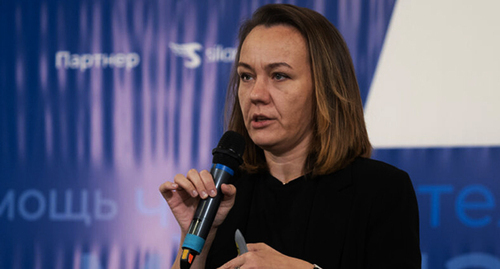
25 February 2023, 15:31
Lawyers describe practice of persecuting WhatsApp users for fakes
Messages posted in public group chats can become a reason for criminal prosecution under a fake article about the Russian Army, although one's personal correspondence should not become the basis for such cases; however, such cases are known. This was stated by lawyers in their comments on the case of Igor Korotkov from Adygea. Investigators have treated the information he spread on the WhatsApp as a fake about the Russian Army.
Links to some videos have repeatedly become the basis for initiating criminal cases, said Svetlana Kuzevanova, a lawyer. According to her story, most of the cases end with real freedom deprivation terms.
"Since one can only be held liable for fakes distributed publicly, open communities and groups are primarily at risk. In the messengers like the WhatsApp, it is not safe to distribute messages in group chats, repost videos or links, since group members can inform law enforcers about the spread of prohibited information," said the lawyer.
Ms Kuzevanova is sure that those who spread fakes in their personal correspondence should not be subject to criminal prosecution, since there is no information publicity. She has added, "But a case is known, when a criminal case was initiated against an employee of the Ministry of Internal Affairs (MIA), who had allegedly reported false information about the actions of the Russian Army by phone to friends and colleagues."
According to Evgeny Chernousov, a lawyer, members of a group are not responsible for the links that are posted there. "People who read, but do not distribute this information further, shall bear no responsibility. But if they decide to transfer this information to a relative or a friend over the phone, then this already threatens with a criminal case," he has noted.
The amendments to the Russian Criminal Code that provide for punishment for spreading false information about the Russian Army were introduced on March 4, 2022. Since then, it became known about a number of criminal cases opened under this article against activists, journalists and politicians; in particular, against Isabella Evloeva, an Ingush journalist, and Sergey Reznik, a journalist from Rostov-on-Don.
The "Caucasian Knot" has also reported that the Supreme Court (SC) of Kalmykia toughened the punishment for Altan Ochirov, a former employee of the Elista Mayoralty, in the case of fakes about the Russian Army, by increasing his term in colony from three to five years. According to the court, he had posted some materials in his Telegram channel that discredited the Russian Army.
This article was originally published on the Russian page of 24/7 Internet agency ‘Caucasian Knot’ on February 24, 2023 at 07:55 pm MSK. To access the full text of the article, click here.
Author: Roman Kuzhev Source: СK correspondent




